
Supporters

AT THE HEART OF THE COLLABORATIVE APPROACH
Green Marine Europe supporters both support and encourage the sustainability initiative being undertaken by the maritime industry. These environmental groups, scientific institutions, and government agencies help to shape the environmental agenda and reflect its relevance and credibility.
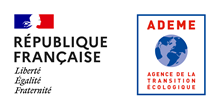
ADEME
ADEME—the French Agency for Ecological Transition—is resolutely committed to fighting global warming and resource degradation.
On the ground, ADEME mobilizes citizens, stakeholders, and territories, allowing them to move towards a resource-efficient, low-carbon, fairer, and more harmonious society.
In all areas - energy, the circular economy, food, mobility, air quality, climate change adaptation, soil, etc. - ADEME's teams advise, facilitate, and help finance numerous projects, from research to sharing solutions.
At all levels, they put their expertise and foresight at the service of public policy.

AGOA
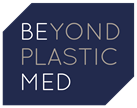
Beyond Plastic Med
With the impulse of the Prince Albert II of Monaco Foundation, the Tara Ocean Foundation, Surfrider Foundation Europe, the Mava Foundation, and the IUCN, the Beyond Plastic Med (BeMed) initiative was created in 2015 to fight against plastic pollution in the Mediterranean. In January 2019, BeMed became an association under Monegasque law.
Its missions are to support and develop a network of Mediterranean stakeholders committed to curbing plastic pollution, to facilitate the implementation of effective and sustainable solutions, and to encourage the sharing of experience and best practices.
To provide the best possible response to local issues, every year BeMed supports projects aimed at reducing the use of plastic, finding alternatives, improving collection systems, raising awareness, collecting data, mobilizing stakeholders, and helping to introduce new regulations.
To strengthen its impact, BeMed created in January 2020 its Business Club which brings together companies that want to commit to a plastic-free Mediterranean.
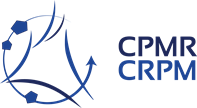
Conference of Peripheral Maritime Regions (CPMR)
The Conference of Peripheral Maritime Regions (CPMR) The CPMR brings together more than 150 Regions from 24 States of the European Union and beyond.
Representing nearly 200 million citizens, the CPMR and its six Geographical Commissions work to promote more balanced development of Europe's territory. They act as both a think tank and a lobby for the Regions.
Thanks to its vast network of contacts within EU institutions and national governments, the CPMR has been working since its creation in 1973 to ensure that the needs and interests of its member regions are taken into account in all policies with a strong territorial impact.
Its main objective focuses on social, economic and territorial cohesion, maritime policies and blue growth, and territorial accessibility.
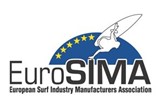
EUROSIMA
EUROSIMA, the European Surf Industry Manufacturers Association, is a non-profit organization that neutrally supports and promotes the best interests of the surfing/action watersports industry and its members. The organization can provide support to encourage new economic development/investment, maximize human resources and enhance labour skills to help innovative companies to further succeed in responsible ways. EUROSIMA fosters dynamic and sustainable innovation within the surfing/action watersports industry by helping innovators to connect with the organization’s network of helpful people and resources.
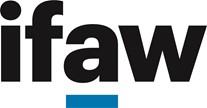
IFAW
The International Fund for Animal Welfare (IFAW) is a global non-profit organization that help animals and people to thrive together. IFAW experts and everyday individuals work across seas, oceans, and more than 40 countries worldwide to rescue, rehabilitate and release animals, as well as restore and protect their natural habitat. The problems facing animals are urgent and complicated. IFAW matches fresh thinking with bold action to work at solving them, by partnering with local communities, governments, non-governmental organizations, and businesses to pioneer innovative ways to help all species to flourish.

Institut océanographique Paul Ricard
The Institut océanographique Paul Ricard has been working for almost 60 years to protect the ocean, climate and biodiversity.
The institute combines research and awareness-raising to "know and protect the sea", and works to find nature-based solutions, within the framework of sustainable development objectives. Its research focuses on the major challenges of the coming decades and is carried out through public-private-philanthropic partnerships (PPPP).
Aware of the pressures on fisheries resources and the issues of food security and sovereignty, over the last 5 years, the Institute has developed a center of aquaculture research and expertise to meet the challenges of sustainability for marine activities.

Labeyrie Fine Foods
Since its founding 75 years ago in southwestern France, Labeyrie Fine Foods has worked to provide the greatest number of people with access to exceptional products once reserved for relatively few. Labeyrie continues to awaken and delight numerous tastebuds but with the redefined mission of responsible consumption.
Recognizing the need to deal with pressing environmental and social imbalances, Labeyrie is now driven by a desire to share a new passion for food that specifically promotes and encourages responsible indulgence.

La Touline
Founded in 1989, La Touline has made maritime employment its expertise. Career development is an important action for which La Touline has acquired real expertise. It translates into actions of validation of acquired experience (VAE), advice in orientation, and professional development, in support of the professional project.
La Touline was recognized as a public utility in 2010 and obtained ESUS (Social Utility Solidarity Company) approval. For its training activities, it is Qualiopi certified by Lloyd's Register (LRQA), a classification society recognized in the maritime environment.
La Touline also has the status of associate member of the regional public guidance services in the Brittany and South regions. Knowledge of the marine environment and the impact of maritime professions helps to give meaning to the professions concerned and therefore has a positive effect on the attractiveness of jobs to younger generations.

Le Gouvernement du Grand-Duché de Luxembourg - Ministère de l'économie
The Commissariat aux Affaires Maritimes acts as a service provider and supervisory authority for the sector and in particular for approved maritime companies operating from Luxembourg. It ensures, without prejudice to the powers of other administrations, the application of the provisions provided for by law and is responsible for monitoring the development of international maritime law, particularly within the European Union.
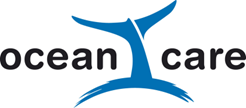
OceanCare
OceanCare has been committed to marine wildlife protection since 1989. Through research and conservation projects, campaigns, environmental education, and involvement in a range of important international committees, OceanCare undertakes concrete steps to improve the situation for wildlife in the world’s oceans. In 2011, OceanCare was granted Special Consultative Status on marine issues with the Economic and Social Council of the United Nations.
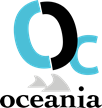
Oceania
Oceania, an association under the French law of 1901, is based on the island of Moorea in French Polynesia. Founded in 2017 by Charlotte Esposito, it aims to ensure the future of cetaceans in French Polynesia through campaigns to prevent collisions with ships operating between Moorea and Papeete, scientific studies, and also by raising awareness among the general public.
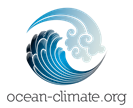
Ocean & Climate Platform
The Ocean & Climate Platform’s mission is to promote thinking and dialogue between the scientific community, civil society and political decision makers. Rallying close to 100 organizations across the world (research institutes, NGOs, foundations, science centres, companies and local and regional authorities) the platform endeavours to foster scientific knowledge and promote solutions relating to the oceans in the context of tackling climate change. A leading organization of the ocean-climate community, the OCP enjoys observer status at UN conventions on climate (UNFCCC) and biodiversity (CDB), and participates in the government review of IPCC reports.

MARIN (Maritime Research Institute Netherlands)
MARIN, the Maritime Research Institute Netherlands, is an internationally renowned, independent institution operating globally with more than 400 specialists in ship modeling. Based in Wageningen, its nautical and hydrodynamic research is also focused on making vessels, platforms, harbours and turbines – any construction in or on water – cleaner, safer and smarter.
Realizing annual turnover of approximately 45 million €, MARIN combines its independent research methods to provide solutions for the concept development, design and operation of waterborne projects, while also partnering with others to stimulate innovations within the maritime industry and academic field.
MARIN is now looking at nature-inspired solutions to continue its mission of focusing on an ever safer and cleaner shipping industry, as well as the ocean’s sustainable use in terms of providing food, raw materials, and energy resources.
Its own testing is transitioning to using fewer – but more complex – models with the help of increased digitalization and simulations.
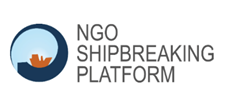
NGO Shipbreaking Platform
The NGO Shipbreaking Platform is a global coalition working to promote safe and sustainable practices in the shipbreaking industry. It monitors and exposes hazardous conditions in shipbreaking yards, particularly in South Asia. Through research and advocacy, the Platform aims to eradicate worker exploitation, occupational hazards, and environmental pollution associated with shipbreaking. It campaigns for international standards and sustainable recycling facilities, while raising awareness and driving systemic change in the maritime sector.

Surfrider Foundation Europe
For more than 30 years, Surfrider Foundation Europe has been protecting, safeguarding, and enhancing the oceans and the entire population that benefits from them. It acts on a daily basis to fight against damage to the coastal environment and its users. The mission includes pollution prevention from marine litter, water quality, and health, and mitigation and adaptation to climate change.

SWEN Capital Partners
is a leading player in sustainable investment in private equity, infrastructure, and mezzanine debt, with over €8.3 billion* in assets under management and advisory, and employs over 120 people.
The management company is owned by the Ofi Invest group (whose main shareholders are entities in the Aéma group: Macif, Abeille Assurances holding, Aésio Mutuelle), Crédit Mutuel Arkéa, and SWEN Managers (a holding company with around fifty employees), has always placed sustainable finance at the heart of its approach and offers its customers innovative and responsible investment solutions.
SWEN CP became a Mission Company in October 2023, a new step marking a decisive orientation of its organization in the service of nature.
* amount of cumulative commitments

Tara Ocean Foundation
The Tara Ocean Foundation, first recognized public interest foundation in France dedicated to the world’s oceans, is leading a scientific revolution: The Foundation has developed an open, innovative Ocean science that will enable us to predict, anticipate and better manage tomorrow’s climate risks. We use high-level scientific expertise to raise awareness and educate young people, mobilize policy makers at the highest level, and enable emerging and developing countries to access the latest knowledge about the Ocean. A veritable floating laboratory, the research schooner Tara has already traveled more than 450,000 kilometers, making stopovers in more than 60 countries during 12 expeditions, carried out in collaboration with international laboratories of excellence (CNRS, CEA, PSL, EMBL, MIT , NASA, and others).The Tara Ocean Foundation is a Special Observer at the UN and actively participates in the Sustainable Development Goals of the UN 2030 Agenda. We want to make the ocean a shared responsibility.

University of Strathclyde
The University of Strathclyde, established in 1796 ‘for the good of mankind’, is situated in Glasgow – one of the UK’s largest cities – and hosts a vibrant, international community of 22,000 students and 3,000 staff from 120 countries. It is dedicated to ‘useful learning’ and is recognized internationally for its close working relationship with global businesses and its partnerships with industry, government and policymakers.
The University of Strathclyde Naval Architecture, Ocean & Marine Engineering Department is a world-leading centre of marine technology focusing on research excellence, effective industrial partnerships and creative engineering education.
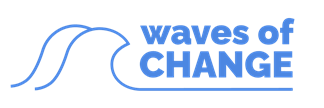
Waves of Change
A non-profit organization founded in 2019 in Biarritz, Waves of Change brings together 200 stakeholders (startups, investors, businesses, local authorities, research institutes, and NGOs) from 5 continents in June for its annual forum and throughout the year in a coalition whose aim, through its collective projects, is to make the environmental transition more collaborative and ecosystem-based.
Its mission and actions align with the United Nations' Sustainable Development Goal 17: Partnerships to achieve the goals.
The nature of the projects initiated and supported relates to innovation and/or conservation always to work for the common good.
WHY BECOME A SUPPORTER?
By becoming a supporter, you will benefit from:

A COLLABORATIVE APPROACH
Participate directly in the development of the program (on environmental issues, specific requirements and other prioritized matters and/or emerging issues).

COMMUNITY PARTICIPATION
Encourage companies to improve beyond regulatory requirements by having the opportunity to relate environmental issues possibly arising from maritime operations, as well as potential solutions.

VISIBILITY
Benefit from the visibility on Green Marine Europe’s website, social media, and Green Marine North America's newsletter distributed to more than 4,500 subscribers.

PREFERENTIAL RATES
Preferential rates at Green Marine Europe and Green Marine annual events, the annual "Green Shipping Day" certification event, and the GreenTech conference, as well as for the purchase of advertising space in our online Magazine.

BECOME A GREEN MARINE SUPPORTER
Green Marine Europe supporters both support and encourage the sustainability initiative undertaken by the maritime industry.

A diversified network
Green Marine Europe’s membership – participants, supporters, associations and partners – is committed to continually reducing the maritime industry’s environmental footprint through a process of continual improvement, building strong relationships with stakeholders, and to publicizing the marine transportation’s environmental activities and advantages.